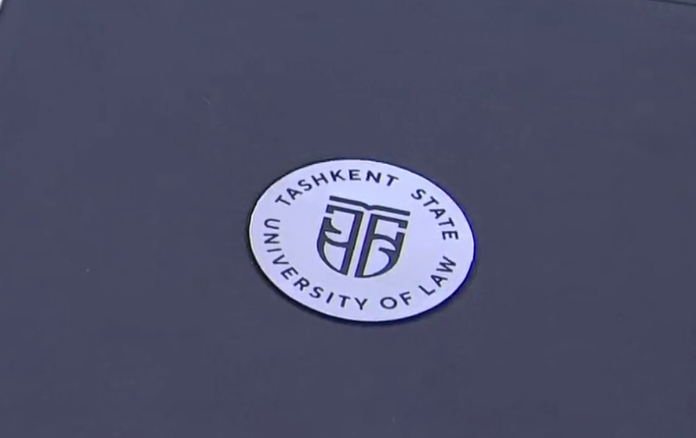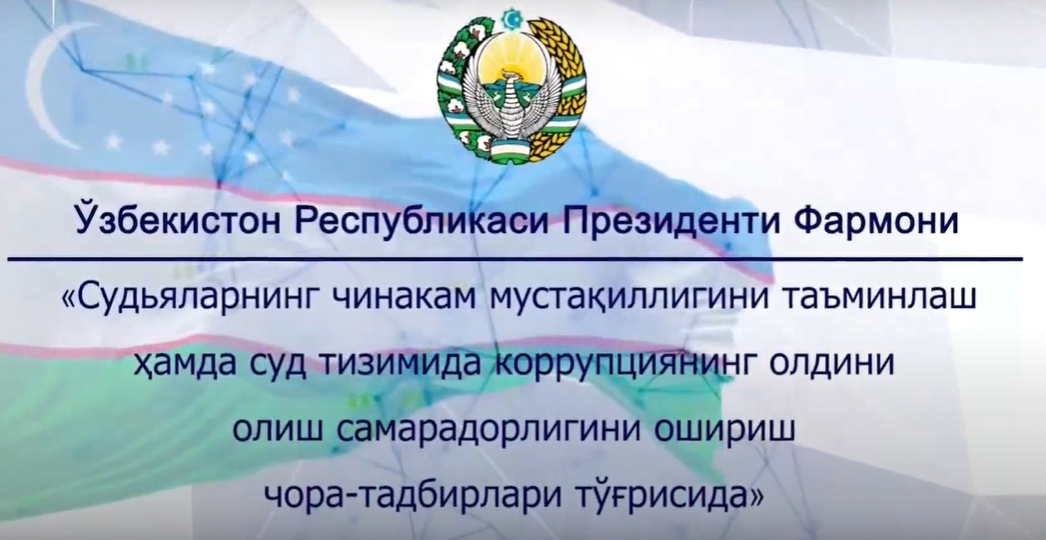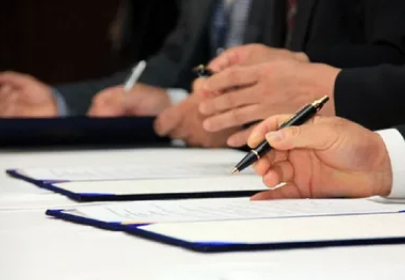Press Service
Деятельность
Law of the Republic of Uzbekistan
About the Supreme Judicial Council of the Republic of Uzbekistan
Adopted by the Legislative Chamber on March 18, 2017
Approved by the Senate on March 28, 2017
Chapter 1. General rules
Article 1. Purpose of this Act
The purpose of this Law is to regulate the activities of the Supreme Judges Council of the Republic of Uzbekistan.
Review by LexUZ
For more information, see Article 11 of the Constitution of the Republic of Uzbekistan.
Article 2. Supreme Council of Judges of the Republic of Uzbekistan
The Supreme Council of Judges of the Republic of Uzbekistan (hereinafter referred to as the Council) is a body of the judicial community, which helps to ensure compliance with the constitutional principle of independence of the judiciary in the Republic of Uzbekistan.
Review by LexUZ
See: Law of the Republic of Uzbekistan "On the Supreme Council of Judges of the Republic of Uzbekistan".
The Council is a legal entity, it has a seal with the image of the State Emblem of the Republic of Uzbekistan and its name.
Review by LexUZ
See: Law "On the State Coat of Arms of the Republic of Uzbekistan".
See previous edit.
Article 3. Legislation on the Supreme Council of Judges of the Republic of Uzbekistan
The legislation on the Supreme Council of Judges of the Republic of Uzbekistan consists of this Law and other legal documents.
(Article 3 as amended by the Law of the Republic of Uzbekistan No. ORQ-683 of April 21, 2021 — National Legislative Information Database, April 21, 2021, No. 03/21/683/0375)
Article 4. Basic principles of the Council's activity
The main principles of the Council's activity are legality, independence, collegiality, impartiality, equal rights of its members and openness.
The Council and its members must comply with and fulfill the requirements of the Constitution and laws of the Republic of Uzbekistan in their activities.
Review by LexUZ
For more information, see Chapter XXII of the Constitution of the Republic of Uzbekistan and Article 4 of the Law of the Republic of Uzbekistan "On Courts" (new edition).
The council performs its activities only in compliance with the law, independently of state bodies and other organizations, as well as officials. Interference with the activities of the Council is not allowed and such interference shall be liable under the law.
Council decisions are taken collegially at its meeting.
The members of the Council shall express their own point of view free from political views and other external influences when making decisions.
All members of the Council have equal rights and have one vote in making decisions on issues within their jurisdiction.
The council carries out its activities in an open manner, in cooperation with state bodies, self-government bodies of citizens, other organizations and citizens, as well as mass media.
Article 5. The composition of the council and the procedure for its formation
See previous edit.
The council consists of a chairman, a deputy chairman, its members and a secretary - a total of twenty-one people, composed of judges, representatives of civil society institutions and highly qualified experts in the field of law.
(The first part of Article 5 is amended by the Law of the Republic of Uzbekistan No. ORQ-717 of September 20, 2021 — National Legislative Information Database, 09/21/2021, No. 03/21/717/0892)
The Chairman of the Council is appointed by the Senate of the Oliy Majlis of the Republic of Uzbekistan on the recommendation of the President of the Republic of Uzbekistan.
See previous edit.
The deputy chairman of the Council is appointed by the President of the Republic of Uzbekistan.
Review by LexUZ
For more information, see: Clause 4 of Article 80 of the Constitution of the Republic of Uzbekistan.
(The third part of Article 5 is amended by the Law of the Republic of Uzbekistan No. ORQ-717 of September 20, 2021 — National Legislative Information Database, 09/21/2021, No. 03/21/717/0892)
Eleven members of the Council are approved by the President of the Republic of Uzbekistan from among the judges on the recommendation of the Chairman of the Council. One of these members of the Council is approved from among the judges of the courts of the Republic of Karakalpakstan.
See previous edit.
The secretary of the council and its seven members are approved by the President of the Republic of Uzbekistan from among representatives of civil society institutions and highly qualified experts in the field of law.
(The fifth part of Article 5 is amended by the Law of the Republic of Uzbekistan No. ORQ-717 of September 20, 2021 — National Legislative Information Database, 09/21/2021, No. 03/21/717/0892)
See previous edit.
The chairman, vice-chairman, secretary and eleven members of the Council, approved from among the judges, perform their activities on a permanent basis, the remaining seven members of the Council perform their activities on a public basis.
Eleven members of the Council approved from among the judges and performing their activities on a permanent basis.
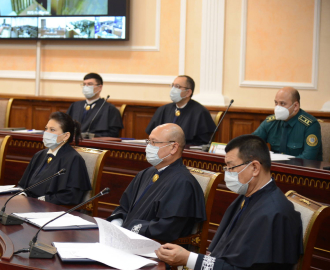
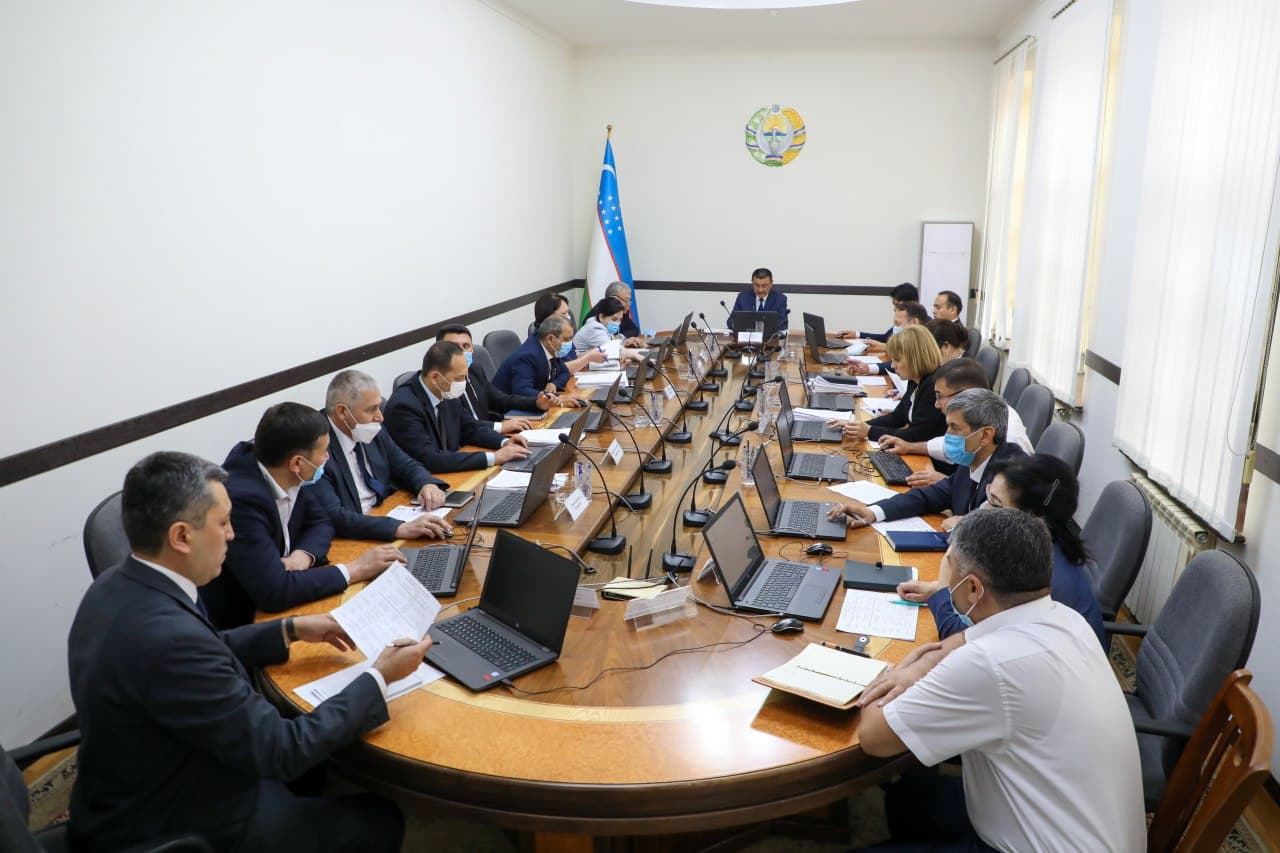
Вакансии судей по Узбекистану
Tashkent region
-
Административный дела
145 -
Уголовные дела
14 -
Экономические дела
131 -
Гражданские дела
9,7
Khorezm region
-
Административный дела
63 -
Уголовные дела
5 -
Экономические дела
58 -
Гражданские дела
7,9
Fergana region
-
Административный дела
102 -
Уголовные дела
6 -
Экономические дела
96 -
Гражданские дела
5,9
Syrdarya region
-
Административный дела
57 -
Уголовные дела
1 -
Экономические дела
56 -
Гражданские дела
1,8
Surkhandarya region
-
Административный дела
72 -
Уголовные дела
5 -
Экономические дела
67 -
Гражданские дела
6,9
Samarkand region
-
Административный дела
106 -
Уголовные дела
3 -
Экономические дела
103 -
Гражданские дела
2,8
Namangan region
-
Административный дела
74 -
Уголовные дела
1 -
Экономические дела
73 -
Гражданские дела
1,4
Navoi region
-
Административный дела
60 -
Уголовные дела
2 -
Экономические дела
58 -
Гражданские дела
3,3
Kashkadarya region
-
Административный дела
85 -
Уголовные дела
3 -
Экономические дела
82 -
Гражданские дела
3,5
Jizzakh region
-
Административный дела
60 -
Уголовные дела
1 -
Экономические дела
59 -
Гражданские дела
1,7
Bukhara region
-
Административный дела
75 -
Уголовные дела
2 -
Экономические дела
73 -
Гражданские дела
2,7
Andijan region
-
Административный дела
90 -
Уголовные дела
7 -
Экономические дела
83 -
Гражданские дела
7,8
Republic of Karakalpakstan
-
Административный дела
68 -
Уголовные дела
3 -
Экономические дела
65 -
Гражданские дела
4,4
City of Tashkent
-
Административный дела
189 -
Уголовные дела
17 -
Экономические дела
172 -
Гражданские дела
9,0


